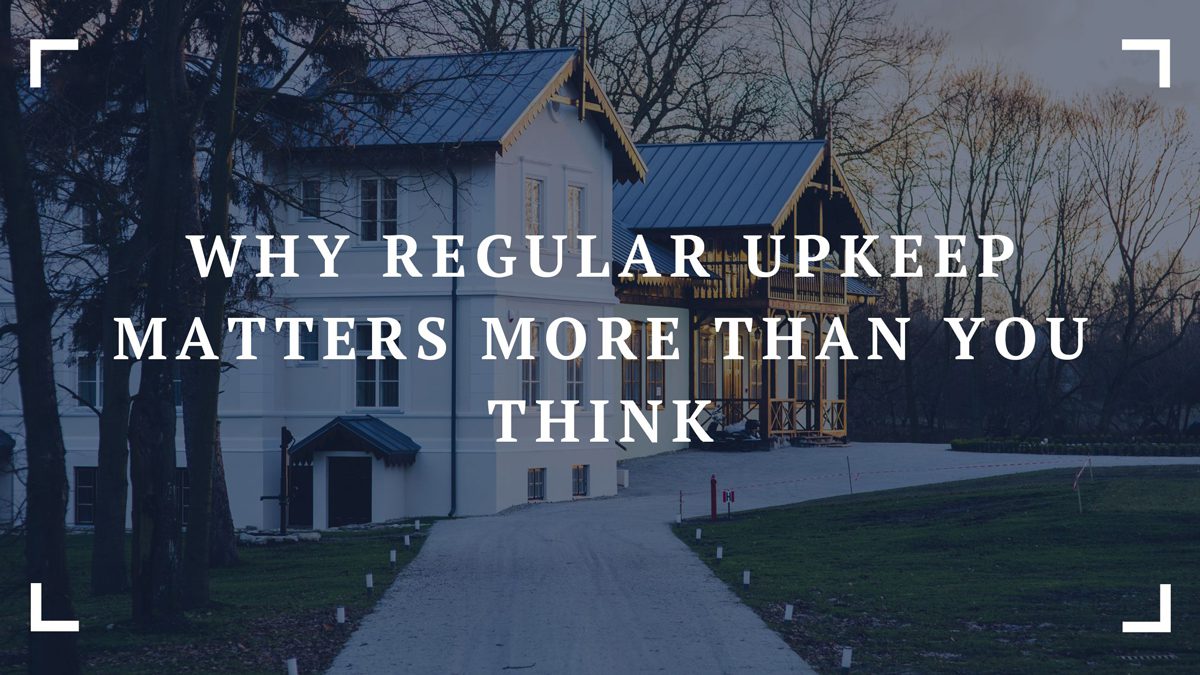In property management, regular upkeep is often perceived as a routine task, sometimes undervalued in its potential impact. However, the importance of consistent maintenance extends far beyond mere aesthetic appeal. This practice is crucial for ensuring the longevity and functionality of your property, impacting everything from safety to financial value.
This article delves into why regular upkeep matters more than you think.

Ensures Safety and Prevention
Safety is a paramount concern in any building or property, and regular upkeep is crucial. Routine checks and maintenance can prevent accidents and hazards, such as electrical malfunctions or structural failures. Moreover, regular maintenance is about preventing problems before they occur. This preemptive approach can save lives and substantial amounts of money in potential legal fees and repairs.
Moreover, it’s essential to know that implementing an effective maintenance strategy requires a systematic approach. This is where the cleanout process enters the picture. It involves a thorough cleaning and inspection of a property at regular intervals. By incorporating this process into regular maintenance schedules, you can ensure that minor problems don’t become costly repairs.
Enhances Property Value
The correlation between regular maintenance and property value is both direct and profound. A well-maintained property stands out in the real estate market, showcasing care and attention that resonates with potential buyers and renters. This meticulous upkeep translates into tangible financial benefits. Properties in prime condition often command higher market prices and rental rates, reflecting the reduced need for immediate repairs or upgrades by new occupants.
Moreover, regular maintenance can help preserve your property’s aesthetic appeal and structural integrity, making it a more desirable investment. It also signals to prospective buyers that your property has been cared for, which can reduce the time it spends on the market. In essence, the investment in regular upkeep is not just about maintaining a property’s current state but actively enhancing its market value and appeal.
Offers Environmental Benefits and Sustainability
Regular upkeep of properties plays a pivotal role in environmental conservation and sustainability. Well-maintained buildings are typically more energy-efficient, contributing to a significant reduction in carbon emissions. For instance, ensuring that heating and cooling systems are functioning efficiently can drastically cut down energy usage, thus lowering the carbon footprint of your property. Properly sealed windows and doors and intact insulation minimize energy loss, leading to more sustainable energy consumption. These practices support environmental stewardship and translate into financial savings through reduced utility bills.
Furthermore, regular maintenance can involve eco-friendly materials and practices, further reinforcing your property’s role in promoting environmental health. In this way, regular property upkeep is not just an act of preservation but also a commitment to a more sustainable and eco-friendly future.
Improves User Experience and Satisfaction
The impact of regular maintenance on the user experience and satisfaction cannot be overstated, particularly in properties serving businesses or residences. A well-maintained environment is crucial for the comfort and well-being of the occupants. It ensures that all facilities and systems, from elevators to HVAC units, are functioning reliably and efficiently. This reliability can directly influence business operations in commercial settings, impacting employee productivity and customer satisfaction.
Regular maintenance enhances the quality of living for residential properties, creating a safe and comfortable environment for residents. Addressing issues promptly and ensuring that facilities are in top condition improves the day-to-day experience and builds trust and confidence among the occupants. Regular upkeep is an investment in the people who use the space, contributing significantly to their satisfaction and overall experience.
Provides Long-Term Cost Savings
The long-term cost savings attributed to regular maintenance are both significant and compelling. Regular upkeep involves addressing minor issues before they escalate into major problems, avoiding the high costs associated with extensive repairs or replacements. This proactive approach extends the lifespan of various systems and equipment within the property, from roofing to plumbing, resulting in fewer replacements over time.
Moreover, well-maintained equipment operates more efficiently, reducing operational costs. Regular maintenance also helps plan and budget for future repairs, allowing for a more controlled financial management of the property. It’s a strategic approach that balances immediate maintenance costs against the potential for significant future expenditures, ensuring financial stability and predictability.
The Bottom Line
Regular upkeep is a critical aspect of property management that goes beyond mere aesthetics. It plays a vital role in ensuring safety, maintaining and enhancing property value, contributing to environmental sustainability, and ensuring occupant satisfaction. By adopting systematic approaches, you can prevent potential problems and reap significant long-term benefits. Therefore, regular upkeep should be viewed not as a mundane task but as a crucial investment in the future of any property.


